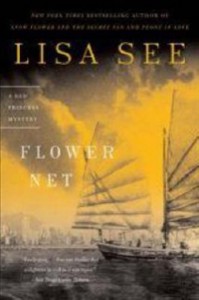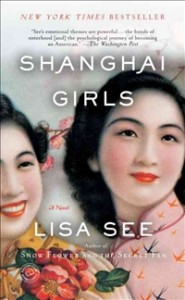I’m just back from a three week visit to China – smoggy, stately Beijing and steamy, glitzy Shanghai.
If you are ever in Shanghai, I wholeheartedly recommend the Shikumen Open House Museum in the French Concession area. Shikumen are stone courtyard houses running off narrow alleyways. There are similar houses in Beijing’s hutongs – some of the old areas that have escaped the massive development in the city. You can see them in pockets set back from major roads. Some of the houses have been converted into hotels, and you can stay there (and have all the mod cons never dreamed of by the original residents).
China, at least in the big cities, is truly monumental, dwarfing mere humans. That’s why the open house museum in Shanghai was so evocative to me. It’s small in scale, one house, making attention to detail easier. I loved the sense of something familiar – gramophone, movie posters, children’s books, hairbrushes – mixed with the exotic – Chinese tea sets, dark wooden screens, a cramped ‘servants’ courtyard’ to dry washing on poles.
There is a sense of that strange westernisation of the East that occurred in the first decades of the twentieth century (see my review of The Makioka Sisters). Perhaps its epitome is the cheongsam, the beautiful close-fitting silk dresses, western-styled in essence but with elegant Chinese detail.
On a writerly theme the shikumen had a small uncomfortable corner room (cold in winter, hot in summer) that was often rented out to aspiring writers. The writer’s room in the museum has notebook, pens and typewriter but, how wonderful that there were so many writers to occupy all the houses (a bit like Newtown or Fitzroy in Australia today!).
There’s a nice review of the Shikumen museum in the Sydney Morning Herald which you can read here.
What’s so haunting about the lifestyle depicted in the museum is how short-lived it was. By 1937, the Japanese had invaded China, and Shanghai was occupied until 1945, and by 1949 Mao Zedong had established the People’s Republic of China.
 Somewhere I read that many of the westerners, who might have lived in Shanghai for generations, and survived internment during the war thought they could carry on as usual after the war (with their privileged lifestyle) not realising everything had changed.
Somewhere I read that many of the westerners, who might have lived in Shanghai for generations, and survived internment during the war thought they could carry on as usual after the war (with their privileged lifestyle) not realising everything had changed.
As so often happens when you’re travelling, you yearn to read fiction about the places you’re visiting – to get behind the surface and immerse yourself in atmosphere, story, insight.
I have to admit to not being able to find a bookstore with many English language titles, so I was at a bit of a loss. However when in Beijing, I had a drink in the Writers’ Bar – at the Raffles Hotel. Nice hotel but it’s a bit of a cheat to have a writer’s bar there – the original being in Singapore where some actual writers did drink – Somerset Maugham, Rudyard Kipling and Joseph Conrad, most notably.
From the B&W photos adorning the Beijing version I think they are confusing  communist party luminaries with literary types but, I give them their due, they did have one bookshelf of foreign language titles and in this I found Flower Net by Lisa See, a mystery thriller set mostly in Beijing.
communist party luminaries with literary types but, I give them their due, they did have one bookshelf of foreign language titles and in this I found Flower Net by Lisa See, a mystery thriller set mostly in Beijing.
Lisa See begins to do for Beijing what Sir Arthur Conan Doyle did for turn-of-the-century London or Dashiell Hammett did for 1920s San Francisco: She discerns the hidden city lurking beneath the public façade says The Washington Post on the back cover blurb. What more could you ask?
Well, a Lisa See book set in Shanghai and she’s delivered on that too with Shanghai Girls about two sisters who live a comfortable life in Shanghai in the thirties but who have to flee when the war breaks out and end up in Chinatown in Los Angeles.
Lisa See has written a number of novels set in China, historical and contemporary. Snow Flower and the Secret Fan which, among other things is about a secret women’s form of writing has now been made into a film. See has also written a sequel to Shanghai Girls called Dreams of Joy.

